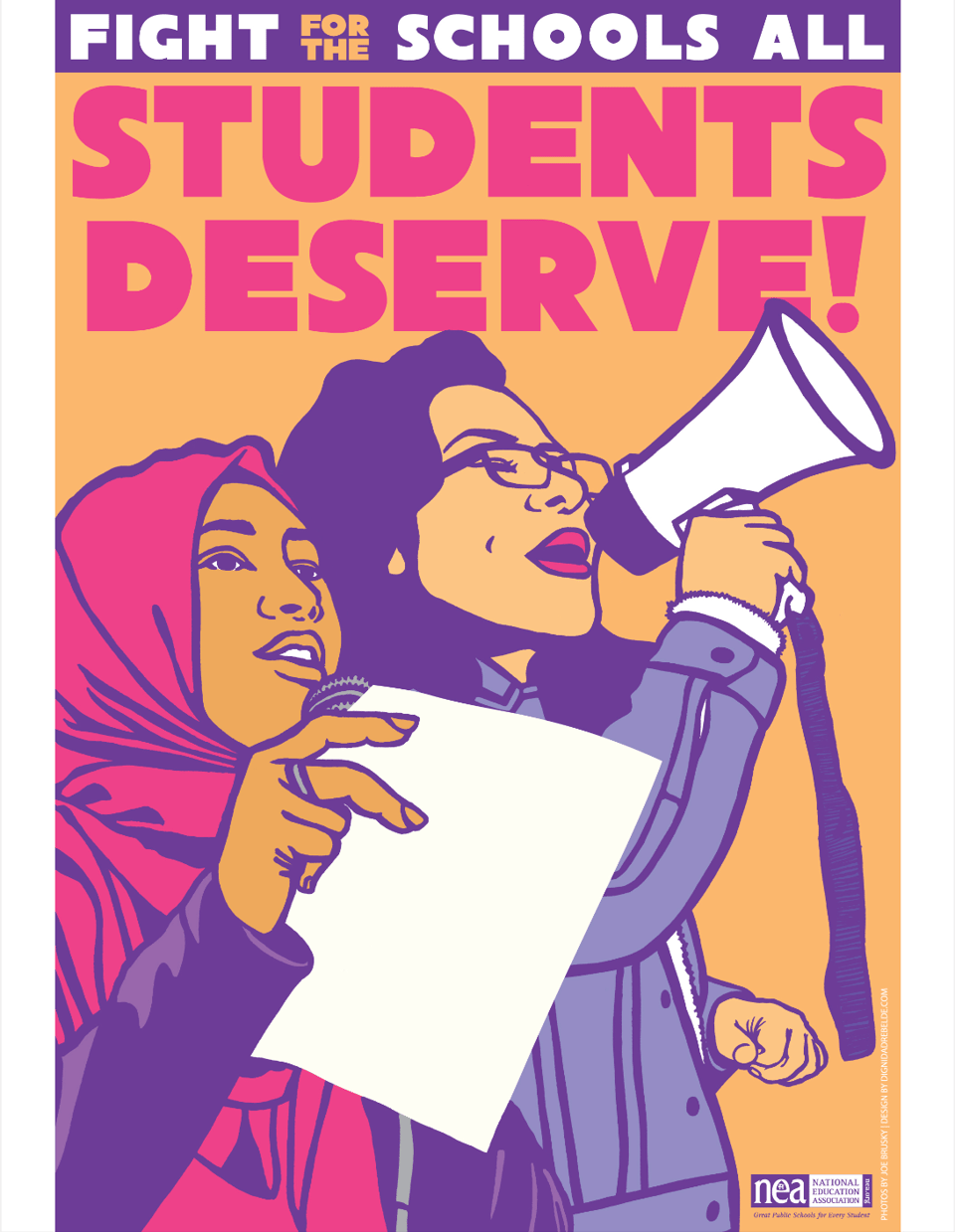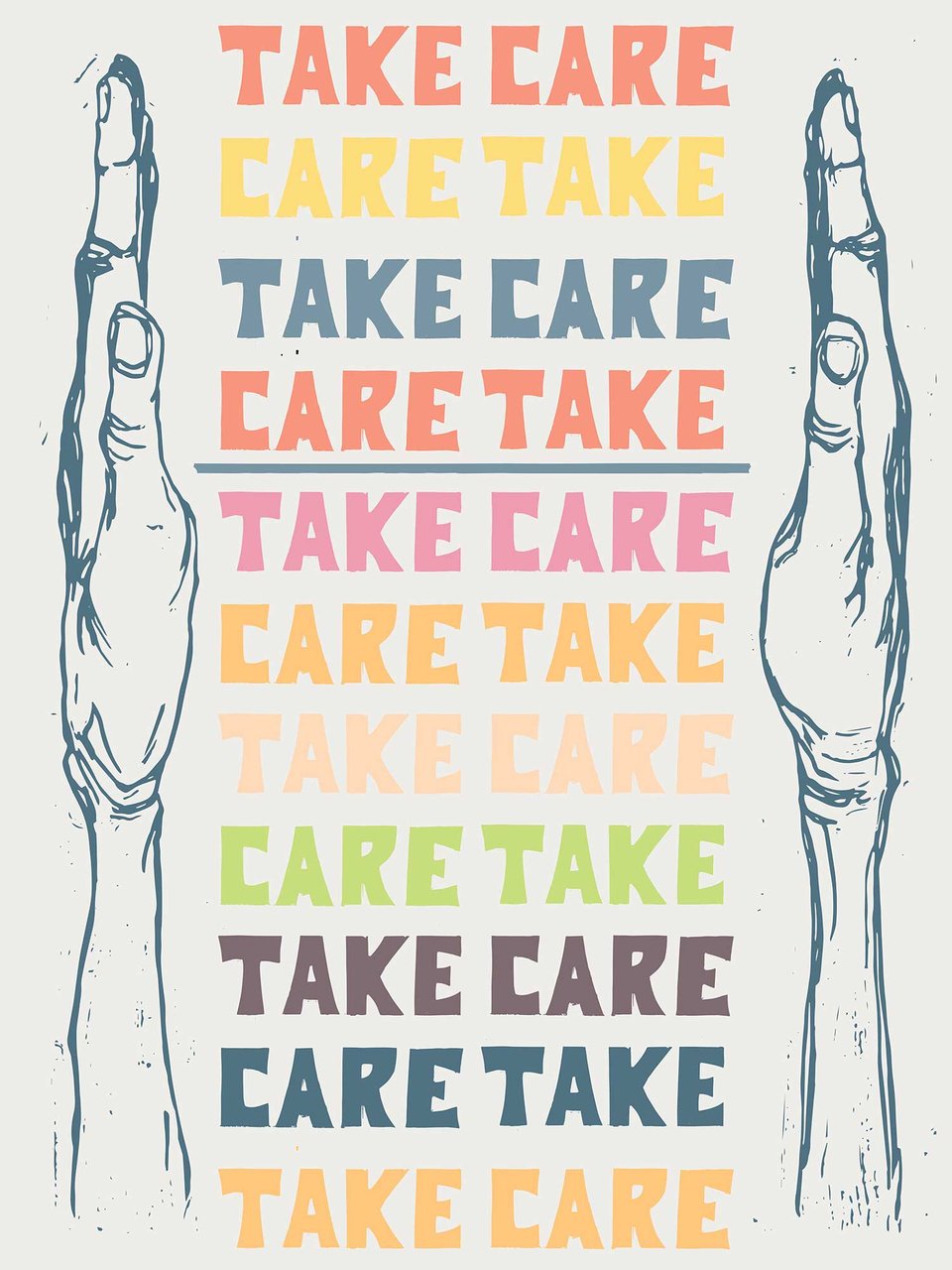We Can Decide Public Education's Future
Why the Struggle for Antibias Education Isn’t Over — It’s Just Getting Harder
I still remember my fourth graders’ reactions to Trump’s election in 2016. There was a heavy mix of shock, fear, and anxiety in the classroom. At the time, Trump felt like an aberration in our national culture, even if his win leveraged an age-old political strategy. I had already been implementing antibias and antiracist teaching practices in my classroom for a few years when Trump was elected and during the Resistance era, I felt more empowered to do so, not less. During my final years of teaching, I tackled white supremacy head on with units of study on the Black Lives Matter movement.
But teaching that way wasn’t necessarily easy or celebrated. I experienced pushback from administrators who didn’t understand that one can and should teach about identity and oppression in a developmentally appropriate way. I also made missteps and learned lessons along the way, especially when I had opportunities to teach white students about racism. Still, what made this teaching possible however was a concerted, widespread effort to change the way we think about education in the United States. Building on the work of thinkers like Gloria Ladson-Billings and bell hooks, movements and organizations like #WeNeedDiverseBooks, the Black Teacher Project, Educolor, and many others, made demands that shifted the national conversation about antibias and antiracist teaching. The organizing against racism in schools was happening in concert and conversation with the organizing against racism throughout U.S. institutions led by BLM. It reached a high water mark in 2020 with the uprisings following the murders of George Floyd and Breonna Taylor.
Obviously, teachers find themselves in very different circumstances today under Trump’s second term. But it’s vital that we don’t understand this change as some sort of return to normal. The changing tone about antibias and antiracist teaching mirrors Trump’s rehabilitation. It is the result of a relentless and coordinated attack on equitable and inclusive teaching practices. Conservatives have been passing laws banning books and silencing conversations while maligning antibias and antiracist pedagogy as perverse, Marxist, racist, and every other imaginable epithet.

The sad irony is that Christopher Rufo, Ron DeSantis and the Right succeeded at turning the tide when these effective practices were just barely gaining a toehold. Most classrooms in 2020 were still devoid of conversations about race, gender, sexuality, or class. Conservatives wanted to keep it that way. And this time under Trump, it will be much more difficult to fight for teaching that honors and celebrates all students.
Trump’s education policies will also create a strong headwind against the campaign for equity in education. While public education wasn’t a major theme of Trump’s campaign (nor Harris’ for that matter), his priorities are somewhat clear. He most likely won’t be able to dismantle the Department of Education, but he can still do a lot of damage, starting with one of his top issues, universal vouchers. Voucher programs, shrouded in the language of choice and opportunity, redirect money from public schools to private schools, often religious. This often happens despite a lack of transparency or accountability as far as results. Research shows that a lot of this money goes to help families who would send their kids to private school without vouchers. A federal voucher program would be devastating blow to public education.
Trump’s other priorities include rolling back protections for LGBTQ+ kids, and trans kids in particular. He’ll also try to provide fewer federal dollars which will hurt the neediest schools and students. There is also likely to be far less enforcement from Office of Civil Rights overall.
In short, equity-minded educators in public schools will likely be facing a dire four years ahead. It may be hard for them to speak up while fighting for the bare minimum in terms of resources. Raising their voices will be all the more challenging in a climate that targets teachers who advocate for equity.
I’m no longer in the classroom, and I’ve never taught in a red state where teaching the truth is particularly dangerous. So I don’t feel comfortable telling any teacher in 2025 what to do. Instead, we need educators and community members who care about public education to take a collective stand. Part of this requires us to remember that culture is not static. Trump’s win and the successful smear campaign against “woke ideology” and DEI practices took time and effort and considerable resources. It’s going to take all of those in order to reverse the tide. And we’ll be doing so in a context that is incredibly hostile to marginalized groups including trans kids and immigrants and to public education overall. Moving the needle will also be more difficult without the use of Twitter and Facebook. These two platforms were really valuable to online organizing during the time that I was learning about antibias and antiracist teaching. Today, many people who support these practices have left these platforms and those who remain face suppression of their views.
It may be hard to prioritize fights about school funding and curriculum while we’re also fighting mass deportations and other horrors. But for everyone who believes in the importance of public education — as a tool for social mobility, as a space for creating social cohesion, as a community where citizenship is cultivated — we’ll need to stay informed and stay involved to the best of our abilities. There are a lot of ways to support public education in the years ahead including making sure your local school board supports equitable and inclusive teaching practices, making sure your local schools are fairly funded, and speaking out against people who want to vilify trans kids or erase U.S. history from classrooms. Support organizations like Zinn Education Project, Learning for Justice, and Teaching for Change. If you have the time and energy, you may want to take a more active role. Run for a school board seat yourself! Help set up a Freedom School or other liberatory education program. Any action, small or big, is valuable so long as we don’t cede the fight.
Antiracist and antibias teaching has been around for decades and it’s not going anywhere under Trump. But to create the schools that kids deserve, schools that honor and celebrate diverse identities, we will have to work to create the necessary culture and conditions. Even as the landscape shifts and the challenges multiply, we must recognize that the future of public education depends on our willingness to stand up, speak out, and keep advocating for the rights and dignity of every student, no matter the political climate.
Other Recent Writing

Goodbye 2024 • Buttondown
End of year recommendations for giving, reading, listening, and watching Art by Pete Railand As usual I am in shock that the new year is arriving. Feeling...
Other Recommendations for Reading, Listening, Watching
Standing on the tracks waiting for a train by Andrea Pitzer
Belonging by Rosemerry Wahtola Trommer